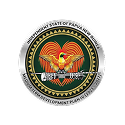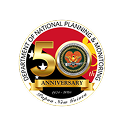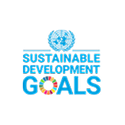Papua New Guinea (PNG) is committed to the global 2030 Agenda for Sustainable Development and the Sustainable Development Goals (SDGs). This includes the Small Island Developing States (SIDS) Accelerated Modalities of Action (SAMOA Pathway) and the current “Antigua and Barbuda Agenda for SIDS (ABAS) – a Renewed Declaration for Resilient Prosperity” to achieve the country’s long-term vision as outlined in Vision 2050. The Sustainable Development Goals (SDGs) have been fully integrated into PNG’s national planning framework, particularly in the Medium-Term Development Plan III (2018 – 2022) and IV (2023 – 2027), along with other national policies, legislation, and budgetary allocations.
Despite progress, the country faces mixed results in key thematic areas due to internal and external challenges. PNG’s Voluntary National Review (VNR) process provides an opportunity to assess implementation progress, highlight challenges, and renew the nation’s commitment to the SDGs.
PNG presented its first Voluntary National Review (VNR) in 2020 at the United Nations High-Level Political Forum (HLPF) in July, in New York, marking a significant milestone in tracking SDG implementations. The report highlighted progress in various sectors, particularly in Health (SDG 3), Education (SDG 4), Climate Action (SDG 13), Partnerships for the Goals (SDG 17) and all the 17 SDGs. Key Achievements Since 2000:
Positive trends were also identified in Affordable and Clean Energy (SDG 7), Zero Hunger (SDG 2), Sustainable Cities and Communities (SDG 11), Clean Water and Sanitation (SDG 6), and Gender Equality (SDG 5) due to policy reforms, innovative financing, and strategic partnerships.
However, challenges persist in areas such as Decent Work and Economic Growth (SDG 8), Responsible Consumption and Production (SDG 12), Peace, Justice, and Strong Institutions (SDG 16), and Life Below Water (SDG 14). These challenges stem from governance issues, limited financial and technical capacities, political ownership of the SDGs, and lack of effective coordination across all sectors.
PNG introduced several governance mechanisms to strengthen SDG implementation, including the National Strategy for Responsible Sustainable Development (StaRS) and the National Planning and Monitoring Responsibility Act (2016). The SDG-MTDP Governance Mechanism was also proposed to streamline coordination through a national steering committee, inter-ministerial committee, multi-sectoral SDG Council, and sectoral technical working groups.
The National Development Budget also plays a crucial role in funding SDGs through the Capital Investment Programme, while the Development Cooperation Policy (2018-2022) guides alignment between development partners and national priorities. PNG’s Public-Private Partnership framework, Civil Society Organization (CSO) Partnership Policy, Open Government Partnership, and the Consultative Implementation and Monitoring Council (CIMC) have further reinforced collaboration between the government and stakeholders.
Building on lessons from the 2020 VNR, PNG is preparing its second Voluntary National Review (VNR) for the 2025 HLPF to be presented in July by the Prime Minister, in New York, with a focus on deepening national ownership of the SDGs and addressing implementation challenges. The 2025 VNR will emphasize:
Through this process, PNG aims to strengthen policy implementation, mobilize resources for SDG acceleration, and reinforce its long-term vision under Vision 2050 and the Medium-Term Development Plan (MTDP) framework.
PNG’s VNR journey underscores the importance of multi-stakeholder collaboration in achieving sustainable development. Meaningful partnerships with development partners, private sector actors, civil society, and international organizations remain vital in localizing the SDGs and mobilizing the resources required to bridge gaps in implementation.
The Department of National Planning and Monitoring (DNPM) continues to play a leading role in coordinating SDG implementation, monitoring, and reporting through the VNR to ensure that PNG remains on track and committed to achieving its national and global development agenda.



